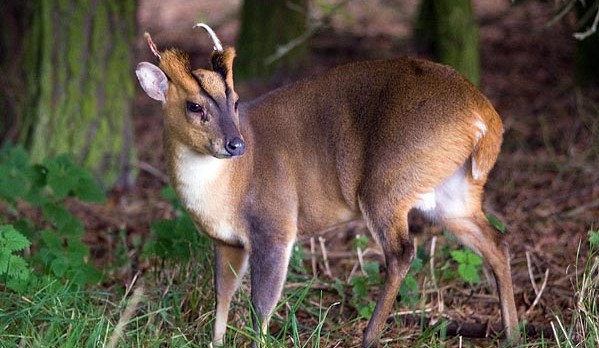Excerpts from Witnessing Another Fishing Scene
DuFu
The war among human beings hasn’t ceased! Where have the phoenix and the qilin fled?
Wicked, we indulge ourselves in disastrous fishing, Obvious of ancient sages’ lament for wildlife killing.
This poem was written in 762 during the Tang Dynasty (618-907), when the poet Du Fu (712-770) traveled from Chengdu to Mianyang to visit a friend, where he witnessed fishing occurring on a grand-scale. At that time the flames of war were burning in the north of China in the bloody An-Shi Rebellion (755-762). Though Mianyang, located in western Sichuan, was far from the battlefield a war of a different kind was underway –wildlife killing. The poet sympathizes with these creatures so much so that he equates them to the divine animals the phoenix and qilin. In this poem Du Fu expresses the feeling that over-hunting is no less than sinning. He reminds us all of the ancient sages,admonishment against killing. He uses “we” instead of “you”, which cuts to the heart of the matter; it is the general public, not a particular person, that takes pleasure in hunting and killing.
The Munijac
DuFu
Faremll, farewell my dear dear rivulet!
I’m honored to join the dainties for their fete.
Yet not important enough to go with some immortal.
Over the butcher and cook I dare not grumble.
In these troubled times all living things are despised,
And by my little fame of flavor I am doomed.
The nobles and nobilities are robbers and thieves, Who in a wink gulp down our precious lives!
This poem, also written by Du Fu, is from the perspective of the muntjac, a small deer that was hunted for its tender meat and the quality of its hide for leather working.
Here the victimized muntjac narrates the heart-breaking story of his approaching death. He sounds meek and humble, but there is indignation and a denunciation beyond his words. We can interpret the poem to read: “I have been hunted in the deep mountains and had no choice but to bid farewell to the clear rivulet by which I have been living. It is such an honor that nobles have set their eyes on me and desire that I become one of the dishes on their extravagant table. I am not as lucky as the muntjac in the myth who was favored by an immortal and ascended to heaven with him. Is there any alternative to being eaten by those gluttons? My intention is not to resent the butcher and cook, for it was my destiny to be born in these troubled times when all living things are taken lightly by the human world. My meat is considered to be of good flavor, which has won me a little fame of a sort, and my doom as well.”
However, in the last two lines, the poet denounces those people of power and status by declaring them robbers and thieves of life. This work, through the hopeless account of the muntjac and the plain attack on those so-called genteel people, conveys a heart-felt compassion toward wildlife.
Abstaxningjrom Killing
SuShi
Fresh meat is cooked for every dinner,
Yet our muscles andflcsh don’ t grow, as ever. Today blood all over the ground splashes; Tomorrow none in our stomachs remains.
Though their lives are cheap and humble,
They feel pain without bitter tears visible.
What’s the sense of killing me the poorest?
What a shame man makes himself beast!
How should we approach wildlife protection? It is advisable to start by looking at what we eat. As the famous poet Su Shi (1037-1101) who lived during the Song Dynasty (960-1279) says in this poem, meat at every meal does not make us stronger, the delicacies made from animals do not remain in our stomachs for long, making the greater crime the fact that the pain and terror of these living beings falls on our blind eyes and deaf ears. Let’s take the position of die creature in torment: How would we feel if we were slain and dismembered, and then steamed, or fried in boiling oil?
The poet Su Shi is clearly concerned about the rampant consumption of animals and wildlife. As was the German social anthropologist Albert Schweitzer (1875-1965) who once said that only when our compassion is not just for human beings but is also extended to all living things under heaven, can the glory of human nature shine brilliantly. Su Shi and other ancient sages are just those who possess such brilliant human nature.























